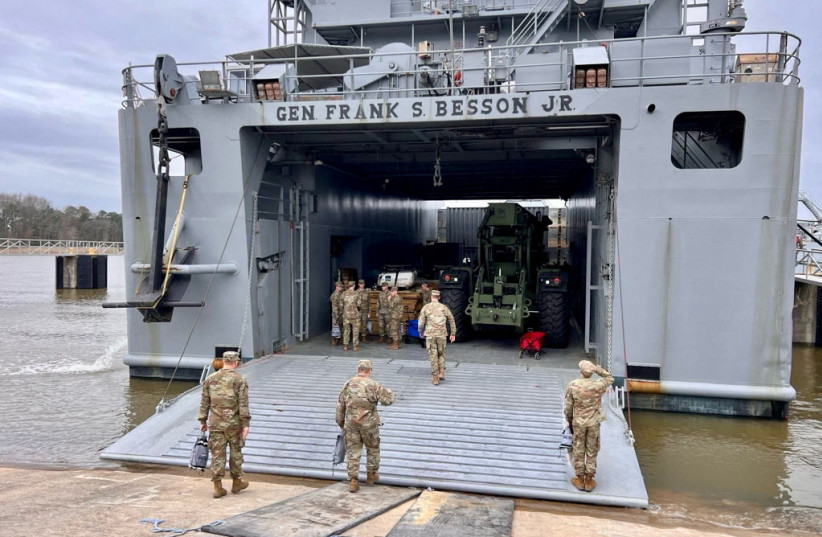The US military has completed the creation of a floating pier that is supposed to be positioned off the coast of Gaza, but a spate of bad weather has kept it from being positioned in place, according to Stars and Stripes.
“As of today [Wednesday], the construction of the two portions of the JLOTS – the floating pier and the Trident pier – are complete and awaiting final movement offshore,” Pentagon spokeswoman Sabrina Singh said. “There are still forecasted high winds and high sea swells, which are causing unsafe conditions for the JLOTS components to be moved.”
Pier to facilitate aid from Cyprus, among others
The swell on Wednesday had reduced to around half a meter off the coast, but winds continued at around 15 knots. It remains to be seen when the floating pier will be in place. Once it is and will be able to receive aid, that aid can be brought to shore and stored at a site the IDF has created on land. That site is around 24 hectares (60 acres) and will be able to hold containers and move them onto trucks for transport.
This is a complex operation, one that took around two months to get off the ground, and included US Army ships that traveled across the Atlantic, through Crete, to Gaza.

It is unclear if the “sea state conditions” that have made it hard to put the pier in place will continue to be a problem. If the pier has to be moved or cannot be used in a heavy sea state, then it could cause other logistical issues for the movement of aid. However, the sea is expected to be better in the spring and summer, making this unique capability more relevant.
The big question though is how this will change the situation in Gaza. With fighting in Rafah, the pier can help to pick up the slack of aid being moved in. There are also other crossing points the IDF opened in the last two months, including a crossing point in the north and one at Erez. The military also re-opened the Kerem Shalom crossing on Wednesday. Aid is also being moved through Ashdod and coming from Jordan, and is also being airdropped.
The report at Stars and Stripes says that “in the meantime, the US is loading aid on the ship, MV Sagamore, currently in Cyprus.” The US says the vessel will be able to make trips back and forth to Cyprus. The Sagamore, according to vessel information website Vessel Finder, is an 184-meter cargo ship built in 2008. The pier’s creation is a major success for the US to showcase that this capability can work. It cost an estimated $320 million and 1,000 US personnel were involved.
